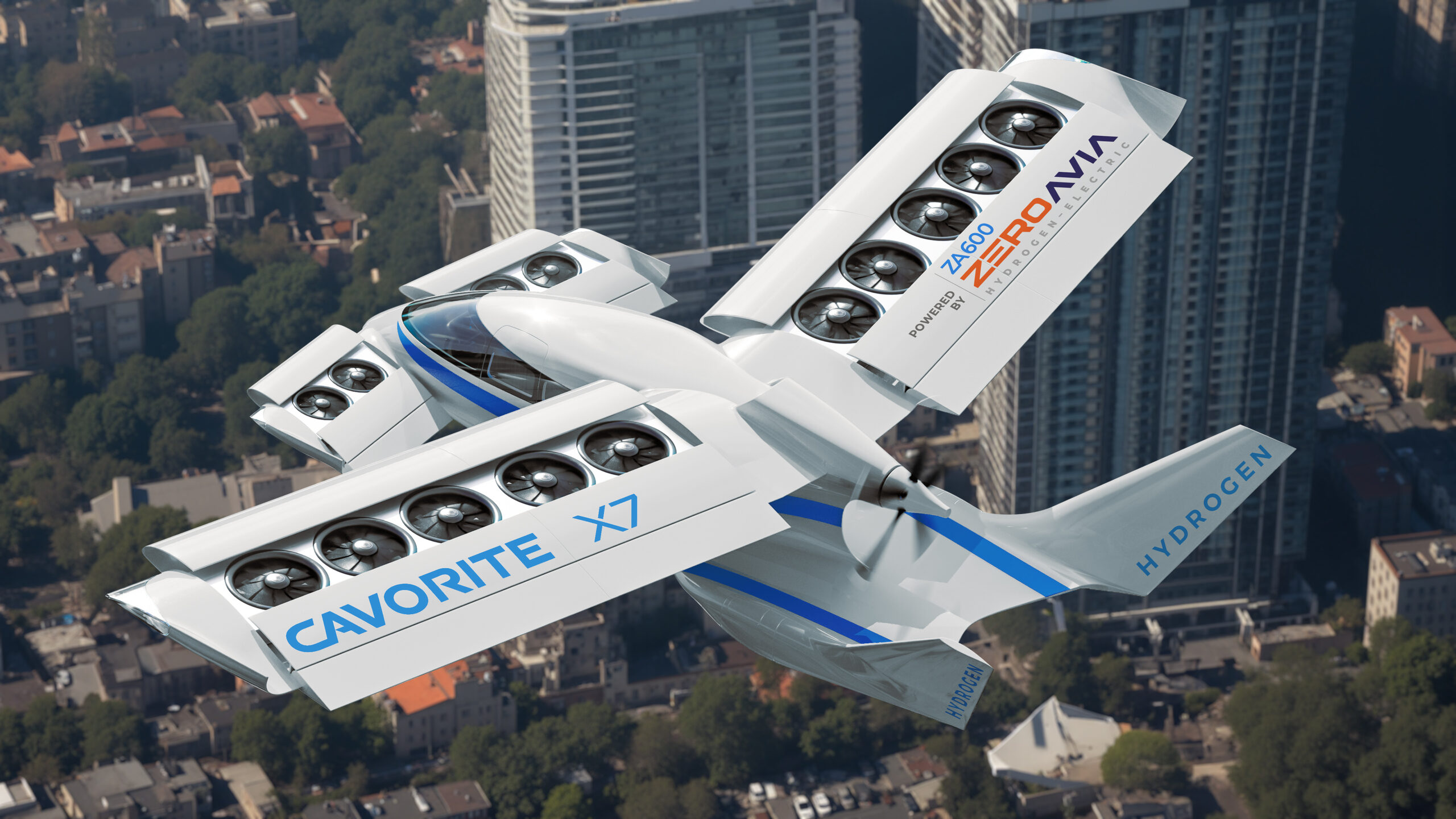Horizon Aircraft and ZeroAvia Partner to Explore Hydrogen-Electric Propulsion for VTOL Aircraft
Key Ideas
- Horizon Aircraft and ZeroAvia collaborate to integrate ZeroAvia's ZA600 hydrogen-electric powertrain in the Horizon Cavorite X7 model for regional VTOL aircraft.
- The partnership aims to explore infrastructure and regulatory requirements for implementing hydrogen-electric technologies and extend the range and durability of electric propulsion systems.
- Horizon Aircraft's CEO praises ZeroAvia's progress with regulators and sees the potential of hydrogen solutions for delivering clean, fast, and efficient air travel.
Horizon Aircraft and ZeroAvia have announced a partnership to explore hydrogen-electric propulsion for regional vertical take-off and landing (VTOL) aircraft. This collaboration involves integrating ZeroAvia's ZA600 hydrogen-electric powertrain into Horizon Aircraft's Cavorite X7 model, a hybrid electric VTOL aircraft with unique features such as a fan-in-wing layout and 14 lift fans for vertical lift. The companies plan to focus not only on the technical aspects but also on identifying the necessary infrastructure and regulatory pathways for implementing hydrogen-electric technologies in regional air mobility.
Horizon Aircraft's successful untethered flight tests of the Cavorite X7, along with support from the U.S. Department of Defense and Canadian regulatory approvals, have set the stage for this exploration of hydrogen propulsion. The partnership signifies a significant step towards incorporating zero-emission technologies into aviation platforms.
Brandon Robinson, the CEO of Horizon Aircraft, expressed admiration for ZeroAvia's recent advancements in hydrogen-electric propulsion systems and regulatory acceptance. He highlighted the potential of hydrogen solutions to revolutionize regional air mobility by offering clean, fast, and highly efficient air travel options.
The broader strategy of Horizon Aircraft includes building partnerships to support the certification and eventual commercial operation of its hybrid VTOL aircraft. This collaboration aligns with the trend in the eVTOL industry where companies are looking towards hydrogen-electric propulsion as a means to enhance range potential and durability of electric propulsion systems.
